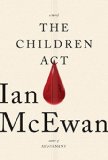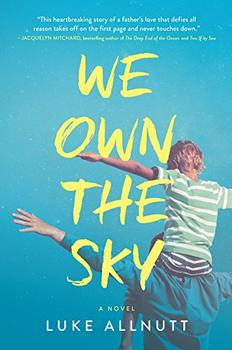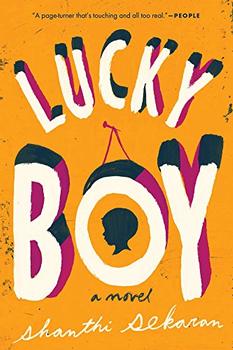Summary | Excerpt | Reading Guide | Reviews | Beyond the book | Read-Alikes | Genres & Themes | Author Bio

Ian McEwan fans likely know by now that the acclaimed English novelist has a fascination for professions. Over the course of his career (he's 66 and has authored more than a dozen books), his main characters have included a neurosurgeon in Saturday (2005), a physicist in Solar (2010), and a recruit for The Security Service, or MI5, in Sweet Tooth (2012).
In The Children Act, McEwan again plumbs the depths of a demanding vocation. This time around, the main character, Fiona Maye, is a High Court judge who lives in London and presides over cases in the Family Division. One evening, she receives a call at home and learns that she must make a decision within a few days about an urgent case. A 17-year-old boy suffering from a rare form of leukemia, Adam Henry, needs a blood transfusion that could save his life, but he and his parents, all Jehovah's Witnesses, refuse consent, based on their belief that accepting blood products into the body is contrary to their faith. It's up to Fiona to judge whether or not the hospital will be granted a lawful order to proceed against the family's wishes.
Simultaneously, Fiona is dealing with turmoil in her personal life. Married for 35 years with no children, and nearing the age of 60, she has just been informed by her faithful husband—at least as far as she knows—that he wants, not a divorce, but her consent to an affair he's determined to have with a 28-year-old statistician. His justification is that their marriage has devolved to the condition of siblings. It's "cozy and sweet," he tells her, but no longer passionate like it used to be.
Consistent with his other books, McEwan's attention to detail, psychological insight, and incomparable eloquence are stunningly evident in many sections, particularly with the scenes that reveal the complexities of Fiona's urgent case. In court she listens to testimony from all parties involved, including the opinion of the boy's hematologist who says his patient's views are those of his parents and not his own. She also hears arguments asserting that the adolescent has only the "vaguest notion" of what could happen to him if he does not receive blood, with the reasoning being that the information would be too distressing for an already seriously ill boy. His death would very likely be "grisly," she is told. He might fight to breathe, he could possibly suffer internal bleeding and renal failure. Because the adolescent is still legally a minor, Fiona knows she must decide the weight she should apportion to the boy's wishes. To judge for herself, she makes a personal visit to the hospital and meets Adam Henry. She soon discovers that Adam is sensitive and extremely intelligent. He writes poetry and speaks with articulate conviction about his religious beliefs. Still, Fiona remains keenly aware of his young age, his vulnerability, and the possibility that his mindset is rooted in an unspoken and denied fear of disappointing his parents and being cast out of the Jehovah's Witnesses' community.
At 221 pages, The Children Act is one of McEwan's leaner books. It's an absorbing read but lacks the riveting suspense and intricacies of some of his previous works. Unfortunately, too, the marital conflict between Fiona and her husband—while compelling in the first few chapters—becomes less so as the story continues. Without giving too much away, the resolution comes across as a bit too strained, and therefore difficult to believe.
Nonetheless, McEwan's powerful prose radiates throughout much of this novel that also possesses his unique brilliance, wit, and warmth.
![]() This review was originally published in The BookBrowse Review in November 2014, and has been updated for the
April 2015 edition.
Click here to go to this issue.
This review was originally published in The BookBrowse Review in November 2014, and has been updated for the
April 2015 edition.
Click here to go to this issue.

If you liked The Children Act, try these:

by Luke Allnutt
Published 2019
A triumphant story about love, loss and finding hope - against all odds.

by Shanthi Sekaran
Published 2017
A gripping tale of adventure and searing reality, Lucky Boy gives voice to two mothers bound together by their love for one lucky boy.
No pleasure is worth giving up for the sake of two more years in a geriatric home.
Click Here to find out who said this, as well as discovering other famous literary quotes!
Your guide toexceptional books
BookBrowse seeks out and recommends the best in contemporary fiction and nonfiction—books that not only engage and entertain but also deepen our understanding of ourselves and the world around us.